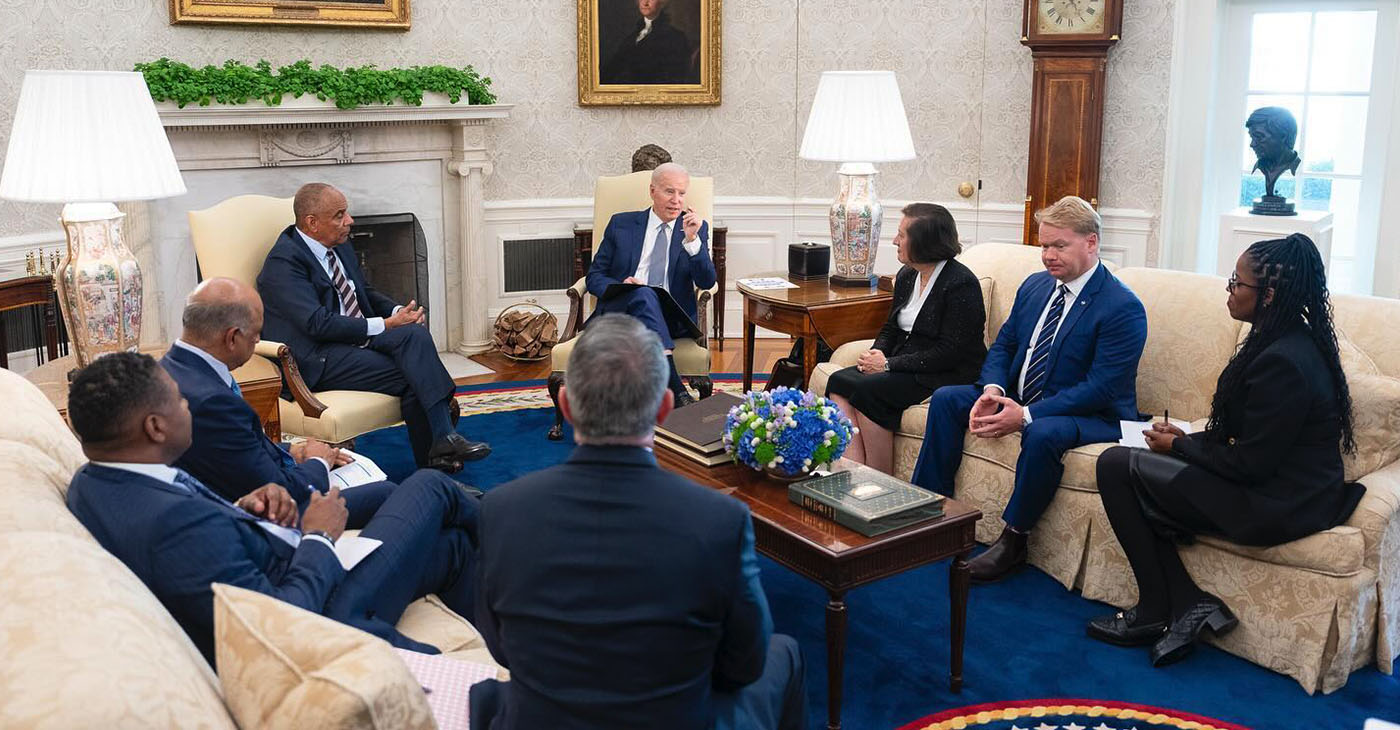Civil
President Biden’s Trip to Israel Hopes to Avert War
“Biden’s mission to Israel aims to address the ongoing conflict and reaffirm support.”
#PresidentBiden, #IsraelVisit, #MiddleEastConflict, #HumanitarianCrisis, #Hamas, #Palestine

President Biden’s Trip to Israel Hopes to Avert War
By Stacy M. Brown
Senior National Correspondent
@StacyBrownMedia
NNPA Newswire
White House Press Secretary Karine Jean-Pierre confirmed this week that President Biden would embark on a diplomatic mission to Israel and Jordan on Wednesday, October 18. The visit aims to reaffirm the United States’ “unwavering support for Israel” in the wake of a recent terrorist attack by Hamas and to strategize on future actions.
Before his departure, the White House reported that Biden talked with Middle Eastern leaders, including President Abdel Fattah El-Sisi of Egypt. The discussions focused on collaborative efforts to alleviate the escalating humanitarian crisis in Gaza with the UN, Jordan, the Palestinian Authority, Israel, and other regional partners.
The conflict in Israel has triggered a cascade of far-reaching consequences, resonating globally. The strife has spurred widespread protests in major cities worldwide, with demonstrators advocating for peace and justice in the region.
At home, protests have intensified as well as hate crimes. In a horrifying incident in Illinois, a 6-year-old boy was tragically stabbed to death, and his mother – both Lebanese – critically wounded in an alleged anti-Muslim hate crime. Joseph Czuba, 71, the landlord, is accused of the brutal attack, which authorities attribute to the ongoing Middle Eastern conflict. President Biden swiftly condemned the attack, categorizing it as a hate crime.
The enduring debate surrounding Israel’s perceived occupation of Palestine continues to be a focal point of discussion, with proponents and critics engaging in a fervent exchange of perspectives. The multifaceted developments underscore the intricate interplay of political, social, and international forces in the ongoing conflict.
As the conflict continues to escalate, up to 600 Americans find themselves stranded in Gaza, grappling with dwindling essential supplies and a dire humanitarian situation. The State Department has reported that access to clean water, food, fuel, and medical provisions has become increasingly scarce.
In retaliation for Hamas attacks on Israel, the Israeli government has enforced a blockade, leaving Gaza without electricity for several days. The toll of the conflict is stark: over 2,450 casualties and 9,200 injuries have been reported in Gaza, while in Israel, 1,400 individuals have lost their lives and 3,500 have been wounded.
Among the casualties are 30 Americans, victims of Hamas’ attack on Israel and the ensuing warfare, according to a State Department spokesperson.
Automated emails and ambiguous phone calls from the State Department have hampered efforts to ensure the safety of Palestinian Americans, leaving families uncertain about evacuation prospects.
The Rafah crossing, a vital gateway, remains closed, further complicating exit strategies. Additionally, the hub has suffered physical damage from Israeli airstrikes in Gaza.
In the United States, reactions to the conflict vary, with Black Americans expressing various emotions. Many drew parallels between the struggles of Palestinians and African-Americans in their fight against systemic racism, as highlighted through social media campaigns.
In a 2006 PBS-TV interview, Carter discussed his book, “Palestine, Peace Not Apartheid,” regarding the Israeli-Palestine conflict.
“This apartheid, which is prevalent throughout the occupied territories, the subjection of the Palestinians to horrible abuse, is caused by a minority of Israelis – we’re not talking about racism, but talking about their desire to acquire, to occupy, to confiscate, and then to colonize Palestinian land,” Carter said. “So, the whole system is designed to separate through a ferocious system Israelis who live on Palestine territory and Palestinians who want to live on their own territory.”














